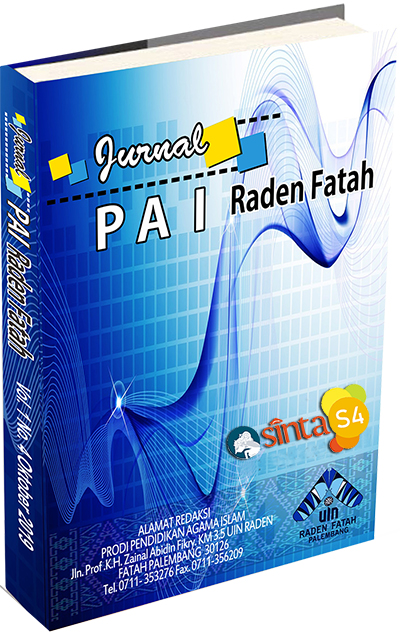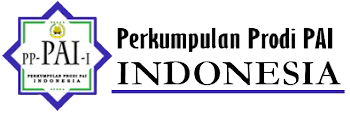Implementasi Program Digital Detox dalam Meningkatkan Konsentrasi Hafalan Al-Quran Santri
DOI:
https://doi.org/10.19109/pairf.v7i2.27576Keywords:
Digital, Detox, ConcentrationAbstract
This study aims to: (1) How is the Implementation of the Digital Detox. Program in Improving the Concentration of Memorizing the Al-Quran of Students at the Al Fikri Tahfidz House in Palembang. (2) What are the Supporting and Inhibiting Factors of the Digital Detox Program in Improving the Concentration of Memorizing the Al-Quran of Students at the Al Fikri Tahfidz House in Palembang. This study is a type of descriptive research using a qualitative approach. The data obtained using interviews, observations, and documentation. The validity test in this study is triangulation of sources, and techniques. The data analysis techniques used in this study are data reduction, data presentation, and drawing conclusions. The results of the study showed that: (1) The implementation of the Digital Detox program at Rumah Tahfidz Al Fikri Palembang was successfully implemented through socialization, supervision, and provision of supporting replacement activities. (2) The main supporting factors for the success of this program are family support, supervision of ustadz/ustadzah, and varied replacement activities.
References
Basu, Swasta dan Irawan. Manajemen Pemasaran Modern. (Yogyakarta: Liberty. 2018). hal. 89.
Carter, W. R et al. The effects of employee engagement and self-efficacy on job performance: a longitudinal field study. The international journal of human resource management, 29(17), 2483-2502. 2018.
Cherry, K. What Is a Digital Detox. https://www.verywellmind.com/why-and-how-to-do-a-digital-detox-4771321. 2020.
Howard Gardner & Katie Davis. 2013. The App Generation: How today's youth navigate identity, intimacy, and imagination in a digital world. Yale University Press.
James Clear. 2018. Atomic Habits. USA: Penguin Publishing Group.
Jamun, Yohannes Marryono. 2018. Dampak Teknologi Terhadap Pendidikan. Jurnal Pendidikan dan Kebudayaan Missio. Vol. 10 No. 1.
Julie R. Ancis. 2020. “The Age of Cyberpsychology: An Overview.” Technology, Mind, and Behavior 1, no. 1.
Jurnal penelitian oleh Zulfikar F.M., Ramli, Inung Wijayanto, S.T., M.T., Sugondo Hadiyoso, S.T., M.T., tentang Deteksi Kondisi Konsentrasi Berdasarkan Sinyal Eeg dengan Stimulasi Menghafal Al-Qur’an. Prodi S1 Teknik Telekomunikasi, Fakultas Teknik Elektro, Universitas Telkom.
Maushart. The Winter of Our Disconnect: How Three Totally Wired Teenagers (and a Mother who Slept with Her IPhone) Pulled the Plug on Their Technology and Lived to Tell the Tale. (Random House Australia. 2010). hal. 29.
Miles, Mathew B., dan A. Michael Huberman. 2004. An Expanded Sourcebook: Qualitative Data Analysis. London: Sage Publications.
Moleong, Lexi. 2000. Metode Penelitian Kualitatif. Bandung: Remaja Rosdakarya.
Nasution, Awal Kurnia Putra. 2020. Integrasi Media Sosial Dalam Pembelajaran Generasi Z. Jurnal Teknologi Informasi dan Pendidikan. Vol. 13 No. 1.
Pathak, N. K. Digital Detox in India. Journal of Research in Humanities & Soc. Sciences, 4(8). 2016. hal. 60-67.
Sarita Yardi Schoenebeck. 2014. “Giving up Twitter for Lent: How and Why We Take Breaks from Social Media.” in Proceedings of the SIGCHI Conference on Human Factors in Computing Systems (CHI ’14: CHI Conference on Human Factors in Computing Systems, Toronto Ontario Canada: ACM).
Siddiqui, Shabnoor and Tajinder Singh. 2016. “Social Media Its Impact with Positive and Negative Aspects.” International Journal of Computer Applications Technology and Research 5, no. 2.
Turel, Ofir and Isaac Vaghefi, 2020. “Social Media Detox: Relapse Predictors,” Psychiatry Research.
Syversten, T. Digital Detox: The Politics of Disconnecting. (Bingley: Emerald Publishing Limited. 2020). hal. 69












.png)


1.png)



